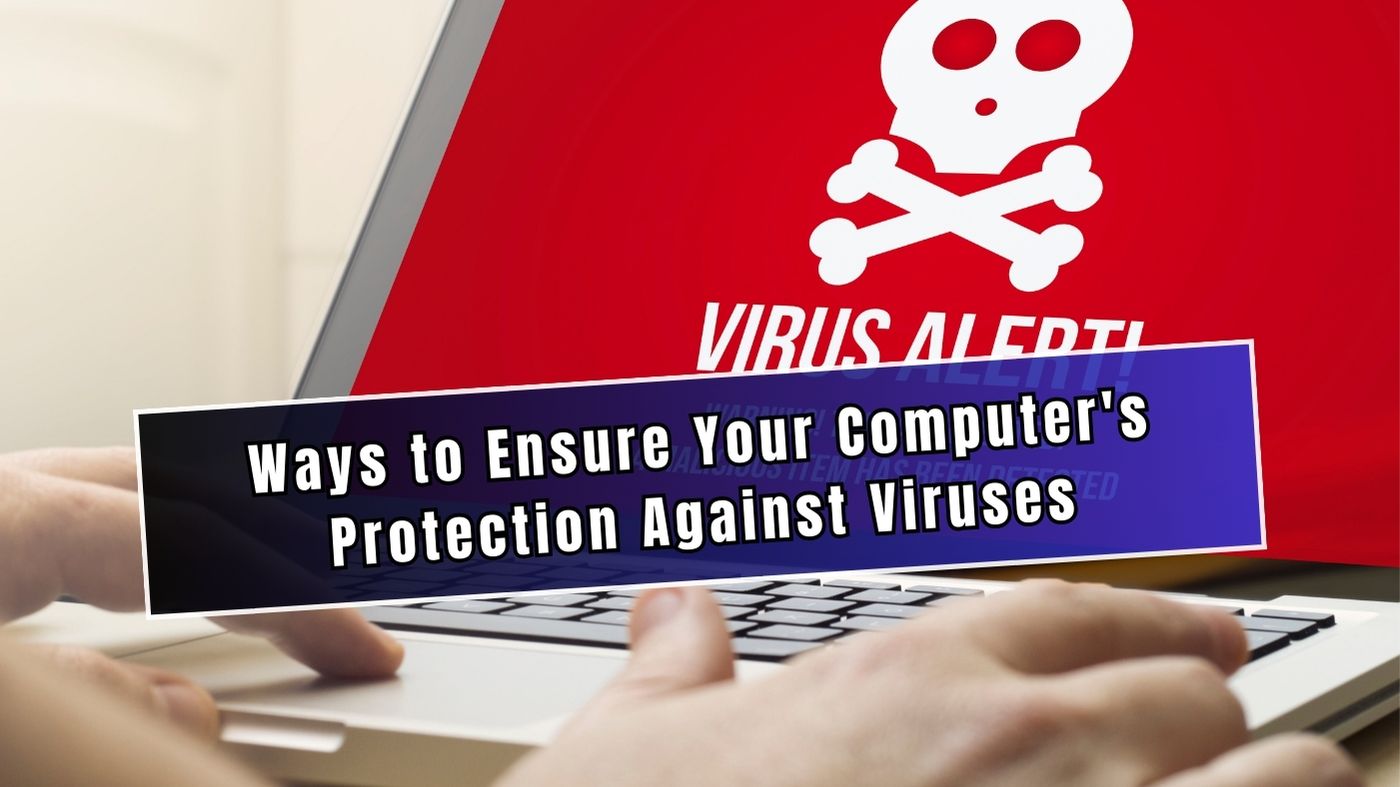In today’s modern era, our computers have seamlessly woven themselves into the fabric of our daily existence. Our computers have become an essential part of our daily lives, serving various purposes such as work, communication, entertainment, and online shopping. Nevertheless, as our dependence on technology grows, we must remain cautious of the potential threats posed by viruses and malware. These malicious entities have the ability to cause significant damage to our systems and jeopardize the security of our sensitive data. To ensure the security of your computer and protect it from harmful viruses, it is crucial to adhere to these essential guidelines.
Protect Your Device with Antivirus Software:
The initial and most critical step in computer security involves the installation of reliable antivirus software. These programs are specifically created to identify and eliminate viruses, malware, and various other types of threats. Make sure your antivirus software is kept up-to-date and schedule regular scans for your computer. Additionally, numerous antivirus programs provide the added benefit of real-time protection. Implementing certain measures can effectively reduce the risk of infections.
Ensure Your Operating System is Always Up-to-Date:
Operating system updates frequently incorporate essential security patches that target vulnerabilities that may be exploited by viruses and malware. Ensure that your operating system, regardless of whether it’s Windows, macOS, or Linux, is configured to automatically download and install updates. It is important to regularly check for updates on your software and applications, as outdated software can make you vulnerable to attacks.
Implement a Firewall:
A firewall serves as a protective shield that safeguards your computer from potential dangers lurking on the internet. Many operating systems include pre-installed firewalls that can be activated. Furthermore, it would be beneficial to incorporate a hardware firewall into your home network setup. Firewalls are essential for safeguarding your computer and providing an additional level of security against unauthorized access.
Be Cautious with Email:
Email can often be a means for the distribution of viruses and malware. Exercise caution when opening email attachments or clicking on links. Particularly when they originate from unfamiliar or questionable origins. Numerous viruses are transmitted via deceptive emails that imitate reputable institutions. Utilize an email filter or spam filter to effectively sort through potentially harmful emails.
Get Software from Reliable Sources:
When it comes to downloading software or apps, it’s crucial to stick to trusted sources. It is advisable to refrain from downloading software from third-party websites, as there is a risk of malware being bundled with legitimate programs. It is advisable to only use official app stores or visit the official websites of the software you require.
Ensure the security of your accounts with robust passwords.
Ensure the security of your computer and online accounts by using robust, individualized passwords. A robust password usually consists of a mix of uppercase and lowercase letters, numbers, and special characters. It’s highly recommended to utilize a password manager for generating and securely storing complex passwords.
Enable Two-Factor Authentication (2FA):
Implementing two-factor authentication enhances the security of your online accounts. Even if someone obtains your password, they won’t be able to access your accounts without the second authentication factor, which is often a code sent to your mobile device. Enable 2FA wherever possible, especially for important accounts like email, banking, and social media.
Regularly Back Up Your Data:
In case your computer does become infected with a virus, having up-to-date backups of your data is crucial. Regularly back up your files to an external hard drive or a cloud-based service. This way, you can restore your data without paying a ransom or losing important information.
Educate Yourself:
One of the best defenses against viruses and malware is knowledge. Stay informed about the latest threats and scams by following technology news and security blogs. Being aware of these common tactics used by cybercriminals can help you avoid falling victim to their schemes.
Beware of Pop-Ups and Advertisements:
Avoid clicking on pop-up ads or advertisements that promise free downloads or other enticing offers. These can often lead to malicious websites or initiate downloads of harmful software.
In conclusion, keeping your computer safe from viruses requires a combination of proactive measures and vigilant habits. By following these tips on keeping your computer safe from viruses, you can significantly reduce the risk of virus infections and protect your digital life from potential threats. Contact us at TN Computer Medics if you’re in need of virus removal today. Remember that computer security is an ongoing process, so stay vigilant and keep your defenses up to date.

